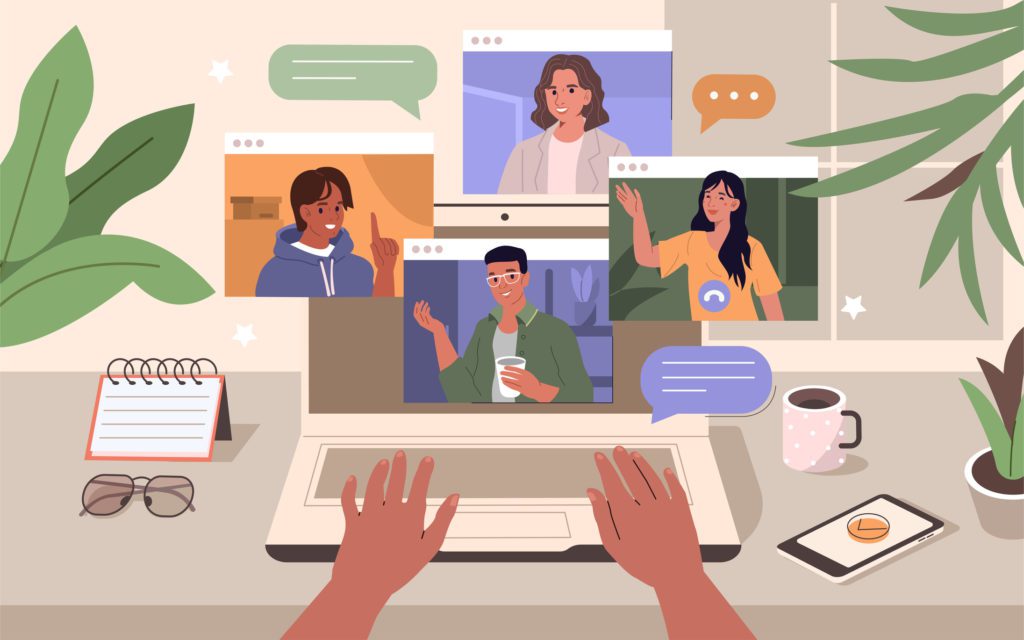Modern Learning Today: Power Skills for the New World of Work

Following up our post on opportunities for learning and development (L&D) professionals to lead in the post-pandemic world of work, there’s another emerging trend that will directly affect the content you create: a focus on upskilling and reskilling.
In LinkedIn’s 5th Annual Workplace Learning Report, 59% of learning leaders surveyed said that upskilling and reskilling will be their focus (a 15% increase from June 2020). But why?
For one, the shift to digital has been the drumbeat pounding over the horizon, and companies knew that this digital work world was going to require a whole new set of skills from employees. Many large companies shifted huge portions of their budgets to “future proof” their workforce like Amazon investing over $700M to deliver upskilling training to its employees. With the pandemic, however, this digital drumbeat shifted into high gear and so did the need to reskill employees.
How can L&D professionals deliver effective reskilling programs?
Because the way we work has changed dramatically, L&D professionals are essentially flying the plane while building it when it comes to reskilling programs. Nearly half (49%) of respondents said they are working with managers to drive learner engagement and skill-building. And it appears as though there’s a lot of work to do: only 40% of learners report that their managers challenged them to learn new skills in the last six months.
Seeing your employees as a renewable resource can help, and making upward mobility within your company a priority is a must. But it’s going to require you to work cross-functionally (which you do already) because most companies don’t have an “internal mobility department.” Working with and mining the expertise within departments across the company is going to be vital for your programs, and this is where a single source of training knowledge becomes critical.
Only 40% of learners report that their managers challenged them to learn new skills in the last six months.
What are the power skills of 2021 and beyond?
Coming out of an uncertain year, we’ve seen that resiliency to rapid change and being comfortable in a virtual work environment (digital fluency) are two important skills—which is good because these are the skills your employees are going to need to thrive now and in the future.
Resilience makes sense but what is digital fluency? Digital fluency is the ability to effectively and ethically interpret information, discover meaning, design content, construct knowledge, and communicate ideas in a digitally connected world. It includes everything from understanding how to use the Google Workspace to advanced artificial intelligence.
Another key skill is creativity but ironically this came in last as a skill L&D professionals cited as important for the future. Time and again, we’ve seen in our own company the power of creativity and we’re suggesting that you don’t write it off as some L&D professionals are doing. To successfully navigate lightning-speed change, you’re going to need people who can come up with creative solutions to big problems. Creativity enables teams to adapt, and even thrive, in the new world of work.

Where do diversity and inclusion fit in?
You may not realize it at first but upward mobility, upskilling, and diversity can all work to everyone’s benefit. In a recent blog post, Harvard Business Review (HBR) highlights how companies can upskill and create a more diverse workforce by looking at how job skills overlap. The example HBR gives is Census data shows that 27% of compensation analysts are African American, Hispanic, or Native American as compared to 15% of financial analysts, despite overlapping skills. If a company trained compensation analysts in budgeting and financial reporting that would help these employees make the jump, not only in equity for the company but also offer a pay hike to employees.
The numbers also support diversity and inclusion (D&I) as not only the right thing to do for people but also for business. McKinsey, Deloitte, the Corporate Executive Board, Gartner, and other analysts have found that companies with D&I programs see an impact, including increased revenue and stock price.
If your L&D organization is going to come out of the pandemic delivering the skills your employees need, make sure you’ve got a strategy and plan to reskill and upskill employees—otherwise, your company might get left behind.
